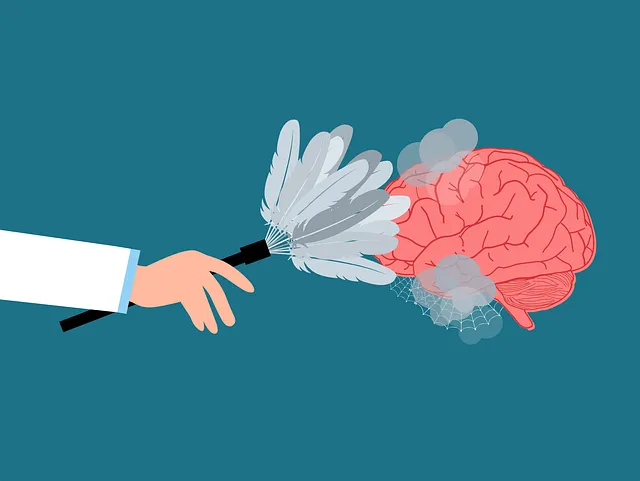Kaiser's Crisis Intervention Teams (CITs) in Arvada are key to providing swift, effective support during mental health crises, utilizing integrated de-escalation and coping skills. These multidisciplinary teams improve outcomes, reduce harm risks, and connect individuals with long-term care. However, gaps exist in their CIT training, hindering professionals' crisis management. Comprehensive CIT training from organizations like Kaiser would substantially enhance Arvada's mental health support, ensuring more effective risk mitigation and coping strategies.
In today’s digital era, effective crisis intervention is more crucial than ever. This article explores the vital role of Crisis Intervention Teams (CITs) in mental health support, with a specific focus on Kaiser’s approach to mental healthcare in Arvada. We delve into the components of successful CIT training programs and highlight their transformative impact on community mental healthcare. Understanding CITs and their benefits is essential, especially given Kaiser’s potential inclusion of such training in its services.
- Understanding Crisis Intervention Teams: Role and Importance in Mental Health Support
- Kaiser's Approach to Mental Health Services: Does it Include CIT Training?
- Components of Effective Crisis Intervention Team Training Programs
- Benefits and Impact: How CIT Training Enhances Community Mental Healthcare
Understanding Crisis Intervention Teams: Role and Importance in Mental Health Support

Crisis Intervention Teams (CITs) play a pivotal role in providing immediate and effective support to individuals experiencing mental health crises. These teams typically consist of trained professionals from various disciplines, such as paramedics, police officers, social workers, and psychiatric nurses, who collaborate to de-escalate situations and offer comprehensive care. At Kaiser, for instance, the organization offers extensive mental health services in Arvada, including CIT programs that empower team members with essential crisis intervention guidance.
By integrating coping skills development and stress reduction methods into their training, these teams are equipped to handle a wide range of scenarios. The role of CITs is crucial in ensuring that individuals receive timely assistance, reducing the risk of harm, and connecting them with long-term support systems. This collaborative approach not only improves outcomes for those facing mental health challenges but also fosters a more supportive and understanding community environment.
Kaiser's Approach to Mental Health Services: Does it Include CIT Training?

Kaiser, a renowned healthcare provider, is known for its comprehensive mental health services in Arvada and across various locations. Their approach focuses on accessible care and patient-centric solutions. However, when it comes to crisis intervention team (CIT) training—a specialized skill set crucial for managing severe mental health crises—it’s essential to inquire if Kaiser includes such programs within their offerings.
The absence of CIT training in traditional healthcare settings can pose challenges for professionals encountering acute psychiatric emergencies. This is where dedicated training becomes vital, empowering staff with coping skills development and depression prevention strategies. Moreover, risk management planning is a key component, ensuring mental health professionals are equipped to handle diverse crisis scenarios effectively. By integrating CIT training into their services, Kaiser could significantly enhance its ability to support individuals in Arvada and beyond during moments of intense psychological distress.
Components of Effective Crisis Intervention Team Training Programs

Effective crisis intervention team (CIT) training programs are multifaceted and meticulously designed to equip participants with the skills needed to navigate and de-escalate high-pressure situations. These programs often include a combination of Self-Awareness Exercises, designed to help team members recognize their emotional responses and biases, and Social Skills Training, fostering effective communication and empathy when interacting with individuals in crisis.
Additionally, comprehensive CIT training provides detailed Crisis Intervention Guidance based on evidence-based practices. This includes learning de-escalation techniques, motivational interviewing, and how to safely and effectively manage behaviors that may pose a risk to oneself or others. Organizations like Kaiser, known for its comprehensive mental health services in Arvada, prioritize these components in their CIT training programs, ensuring that teams are prepared to respond to crises with compassion, confidence, and effectiveness.
Benefits and Impact: How CIT Training Enhances Community Mental Healthcare

Crisis Intervention Team (CIT) training programs play a pivotal role in enhancing community mental healthcare by equipping laypeople with essential skills to support individuals facing severe emotional distress or mental health crises. This training equips participants with the knowledge and confidence to provide immediate, compassionate, and effective assistance, potentially reducing the burden on professional emergency responders and healthcare facilities.
In Arvada, where Kaiser offers comprehensive mental health services, CIT training has proven particularly impactful. By empowering community members with trauma support skills, these programs foster a culture of care and resilience. The Mind Over Matter principles taught during CIT training encourage participants to approach mental health challenges with empathy and understanding, thereby promoting early intervention and preventing conditions like depression from escalating. This proactive approach not only benefits individuals in crisis but also strengthens the overall mental wellness fabric of the community.
Crisis Intervention Team (CIT) training programs play a pivotal role in enhancing community mental healthcare, as evidenced by their successful implementation and benefits. Programs like these equip first responders with crucial skills to navigate crisis situations effectively. In the context of Kaiser’s mental health services in Arvada, such training could significantly contribute to improving patient outcomes and overall community well-being. By integrating comprehensive CIT training into their offerings, organizations can foster a more responsive and compassionate mental healthcare system.






